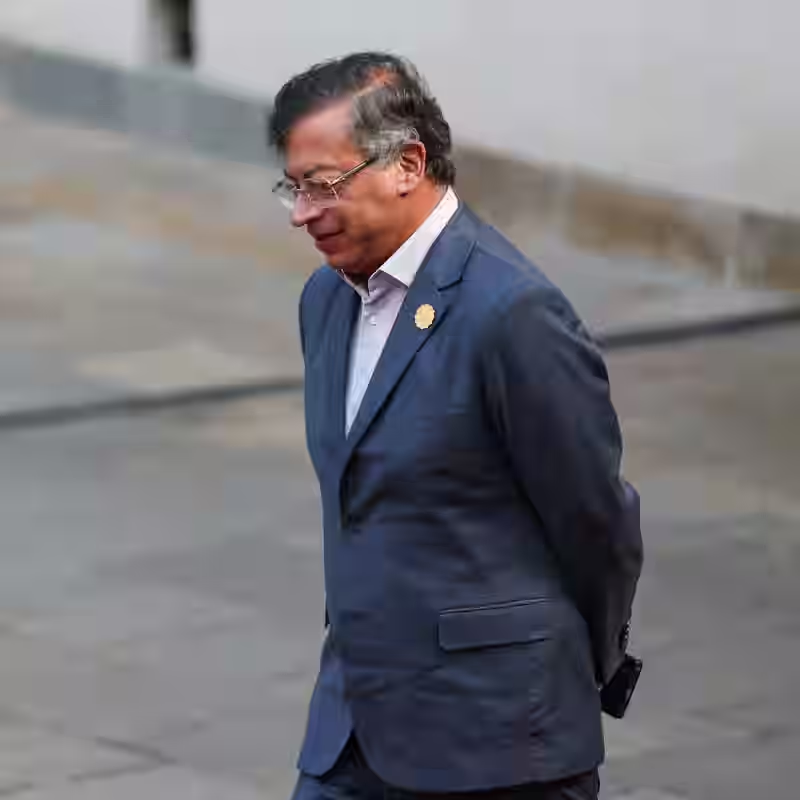President Petro’s Offhand Remark Exposes Deep Class Divides in Colombia
In what began as a routine policy speech, Colombian President Gustavo Petro ignited a nationwide controversy by referencing the name “Brayan”—a common yet stigmatized first name in Latin America—while criticizing a lack of education among certain demographics.

“We can’t keep repeating the same mistakes,” Petro said during a September 28 address. “When you see a Brayan who hasn’t finished high school, it’s not because he’s lazy—it’s because the system failed him.”
While intended as a critique of systemic inequality, the comment was widely interpreted as reinforcing a harmful stereotype that links the name “Brayan” (and its variants like “Bryan” or “Brian”) with poverty, delinquency, and low educational attainment.
Why ‘Brayan’?
The name surged in popularity in Colombia and across Latin America in the 1990s and early 2000s, often inspired by American pop culture (e.g., actor Brian Austin Green). But over time, it became a shorthand in elite and middle-class circles for working-class youth—frequently used in memes, jokes, and even job rejections.
The Backlash: From Social Media to the Streets
Public Reaction Snapshot
- #YoMeLlamoBrayan trended nationally—thousands shared stories of discrimination
- Teachers, doctors, engineers named Brayan posted credentials to reclaim the name
- Opposition lawmakers accused Petro of “classist dog-whistling”
- Petro later apologized: “My words were clumsy, but my intent was solidarity”
Names as Class Markers: A Regional Phenomenon
Colombia isn’t alone. Similar stigmatized names exist across Latin America:
| Country | Stigmatized Name(s) | Associated Stereotype |
|---|---|---|
| Colombia | Brayan, Yulieth, Jhon Fredy | “Barrio youth,” uneducated, flashy |
| Mexico | Kevin, Ashley, Junior | “Naco” (tacky, lower-class) |
| Argentina | Facundo, Thiago | Upper-class mockery of nouveau riche |
| Brazil | Kauã, Ryan, Mirella | “Favela names” in elite discourse |
Academic Insight: The Sociology of Naming
According to sociolinguist Dr. Camila Rojas of Universidad Nacional de Colombia, names like “Brayan” reflect aspirational naming trends among marginalized communities—but become targets of ridicule when they deviate from elite norms.
“It’s not the name itself—it’s who is allowed to succeed with it,” Dr. Rojas said. “A Brayan from Chapinero [wealthy Bogotá neighborhood] is a ‘quirky international kid.’ A Brayan from Soacha is a ‘delinquent.’”
Infographic: The ‘Brayan Effect’ in Numbers
Data from Colombia’s National Registry (2024)
- 42,300+ Colombians are named Brayan or Bryan
- 68% live in municipalities with poverty rates >30%
- Only 12% hold university degrees (vs. national avg. of 27%)
- Job callback rate for résumés with “Brayan”: 23% lower than “Carlos” or “Andrés” (study by CEDE, 2023)
Petro’s Contradiction: Populist Rhetoric vs. Elite Language
President Petro, Colombia’s first leftist leader, has built his platform on fighting inequality. Yet critics argue his comment reveals how even progressive elites unconsciously perpetuate class bias.
“He meant to defend Brayan,” said activist Laura Mendoza, “but he still used him as a symbol of failure—not potential.”
Broader Implications
The incident has sparked a national conversation about:
- Implicit bias in hiring and education
- The weaponization of names in media and comedy
- Whether solidarity requires changing systems—not just pitying individuals




